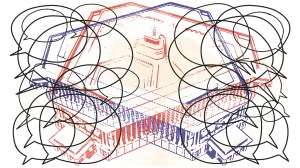Lay, Skilling face 145;deliberate ignorance146; charge
The judge in the Enron trial dealt a serious blow to the two former chief executives accused of defrauding investors by agreeing to allow jurors...

The judge in the Enron trial dealt a serious blow to the two former chief executives accused of defrauding investors by agreeing to allow jurors to find both men guilty for consciously avoiding knowing about wrongdoing at the company.
Judge Simeon T. Lake III said in court that a draft version of the charge that will be read to the jurors on Monday includes a 8216;8216;conscious avoidance8217;8217; or 8216;8216;deliberate ignorance8217;8217; instruction for both Jeffrey K. Skilling and Kenneth L. Lay, the former Enron chief executives. The standard, also known as the 8216;8216;ostrich instruction,8217;8217; offers a lower burden of proof to find the men guilty of conspiracy and fraud related to the company8217;s collapse in December 2001.
Outside legal experts said they expected Judge Lake to allow the 8216;8216;conscious avoidance8217;8217; instruction for Lay, who some witnesses claimed consciously avoided acting on information about potential improprieties at the company. But these experts said they were surprised that the judge would apply that standard to Skilling, who did not argue that he was unaware of crucial issues brought up in the case.
8216;8216;This is probably going to lead to a conviction for Skilling but give him a very credible appeal,8217;8217; said Joel M. Androphy, a white-collar criminal defense lawyer in Houston. 8216;8216;Allowing this is a stretch for Skilling.8217;8217;
Daniel Petrocelli, Skilling8217;s lawyer, said he was 8216;8216;troubled8217;8217; by the instruction. 8216;8216;We think it has no place in the case against Jeff Skilling,8217;8217; Petrocelli said. 8216;8216;We have never asserted the ostrich defense. We have said all along this was not a case of hear no evil, see no evil. It was a case of there was no evil.8217;8217;
Skilling, Petrocelli said, 8216;8216;walked the halls8217;8217; of Enron 8216;8216;and never feigned ignorance or lack of knowledge on any of the important facts or issues in the case.8217;8217;
By allowing the so-called ostrich instruction, referring to that bird8217;s burying of its head in the sand, Judge Lake is continuing a trend in which courts increasingly apply the lower standard of criminal knowledge in white-collar cases.
The deliberate ignorance standard is more common in so-called street crimes like drug cases where a package is placed in a car and the driver delivers the package to a customer but avoids discovering that drugs are inside. Petrocelli likened the Enron instruction to someone knowing someone else is about to jump out a window, closing his eyes and only opening them after the other person has already jumped.
8211;ALEXEI BARRIONUEVO
- 01
- 02
- 03
- 04
- 05































